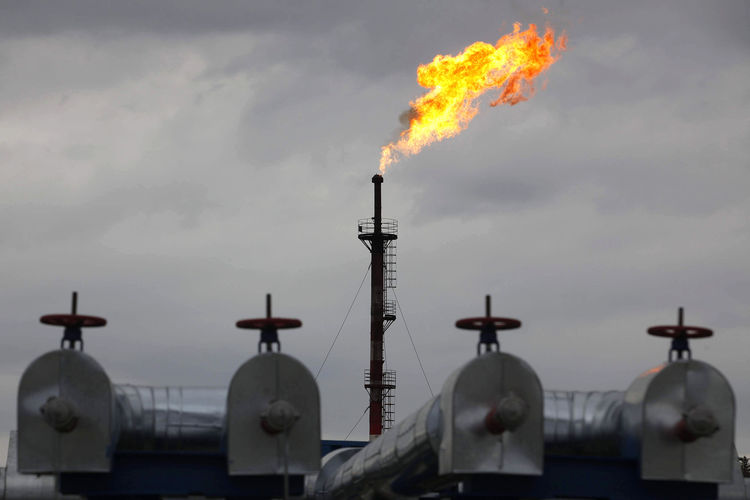- FG Increases Gas Flare Penalty from N10 to N613
The Federal Government has increased the gas flare penalty from N10 per thousand standard cubic feet of gas to $2 or N612.8 (at the official exchange rate of N306.4 to one dollar) per thousand standard cubic feet of gas.
According to the government, the increase is in the case of any firm that produces 10,000 barrels of oil or more, adding that for anyone producing less than 10,000 barrels of oil per day, the penalty has been increased to $0.5 or N153.2 per thousand standard cubic square feet of gas.
The government also announced a fine of N50,000 or six months jail term, or both, for anyone who provided inaccurate flare data.
It disclosed these in the gazetted Flare Gas (Prevention of Waste and Pollution) Regulations, 2018, which was made available to our correspondent in Abuja on Monday by the Programme Manager, Nigerian Gas Flare Commercialisation Programme, Office of the Minister of State for Petroleum Resources, Mr Justice Derefaka.
The report stated, “The current meagre flare payment (penalty) of N10 per thousand standard cubic feet is increased, in the case of any one producing 10,000 barrels of oil or more, to $2 per thousand standard cubic feet of gas; and in the case of anyone producing less than 10,000 barrels of oil per day, to $0.5 per thousand standard cubic square feet of gas.
“There are mandatory additional payments by the producer of $2.50 for failure to produce accurate flare data; failure to provide access to flares or flare sites; failure to sign a connection agreement; in the event of continuous or egregious breaches, there is a possibility of suspension of operations, or a termination of the producer’s licence.”
The new regulation, however, stated that the producer would not be liable in a situation “where the flaring was caused by an act of war, community disturbance, insurrection, storm, flood, earthquake or other natural phenomenon, which is beyond the reasonable control of the producer.”
The new law stated that in a situation where a producer failed to provide flare gas data to a request made under regulation four of the stipulated regulations, or fail to supply accurate or complete flare gas data, such producer would be forced to pay a fine of $2.50 per day for every 1,000 SCF of gas flared or vented within the oil field or marginal field.
The penalty of $2.50 per day also applies to a situation whereby the producer fails to install metering equipment within the time required to do so by the Department of Petroleum Resources, or fail to agree to enter into a concession agreement with a permit holder.
“In the event of the continued failure of the producer to comply with any of the requirements of this regulation, the minister may direct the producer to suspend the operations or revoke any Oil Mining Lease or marginal field awarded to the producer,” it added.
The new regulation requires gas producers to maintain daily log of flaring and venting of natural gas produced in association with crude oil and submit same to the DPR within 21 days following the end of each month.
According to the document, all gas flare logs must be based on data retrieved from metering equipment installed at the various producers’ facilities, while the logs must be kept by the producers in safe custody for no less than 36 months.
Oil and gas experts had in the past called on the Federal Government to raise the gas flare penalty from N10 per 1,000 scf to something higher than N50 in order to tame the tide of free flow of flares in the Niger Delta.
They argued that the oil producing companies had been taking Nigeria for a ride over the years in flaring gas at will, because the penalty was so cheap when compared to what was obtainable in some other climes.

 Naira4 weeks ago
Naira4 weeks ago
 Naira4 weeks ago
Naira4 weeks ago
 Travel3 weeks ago
Travel3 weeks ago
 Naira3 weeks ago
Naira3 weeks ago
 Jobs4 weeks ago
Jobs4 weeks ago
 Naira3 weeks ago
Naira3 weeks ago
 Investment4 weeks ago
Investment4 weeks ago
 Travel4 weeks ago
Travel4 weeks ago




























